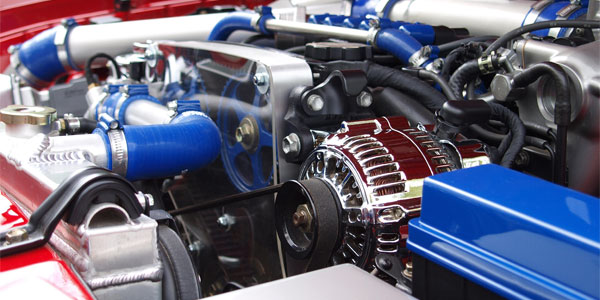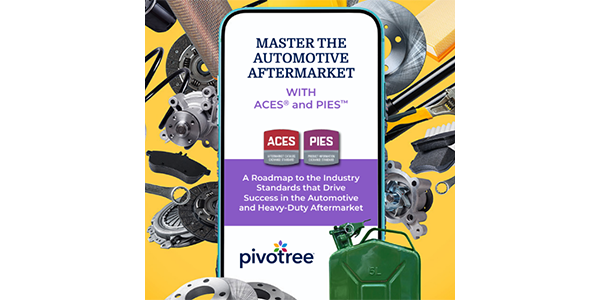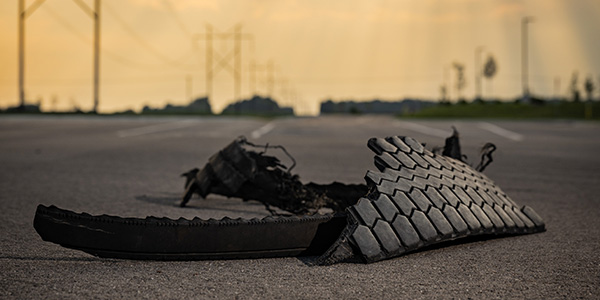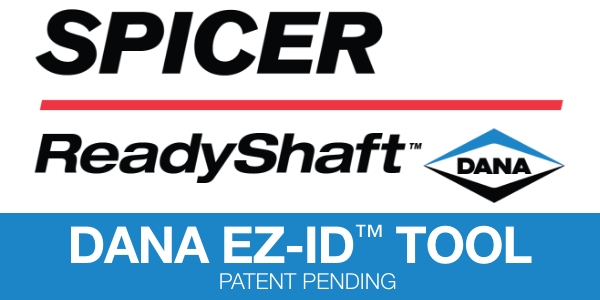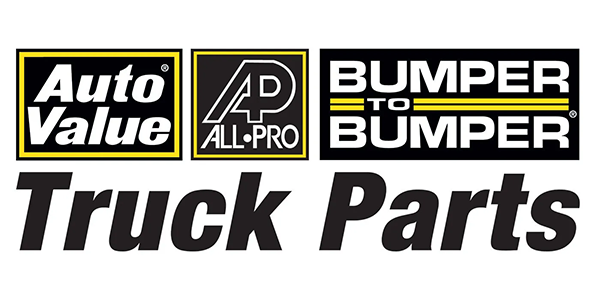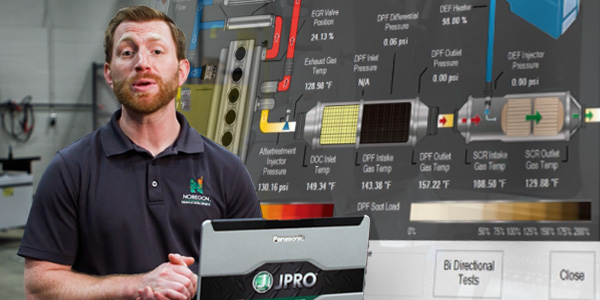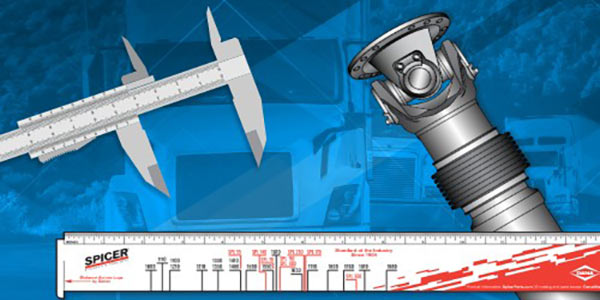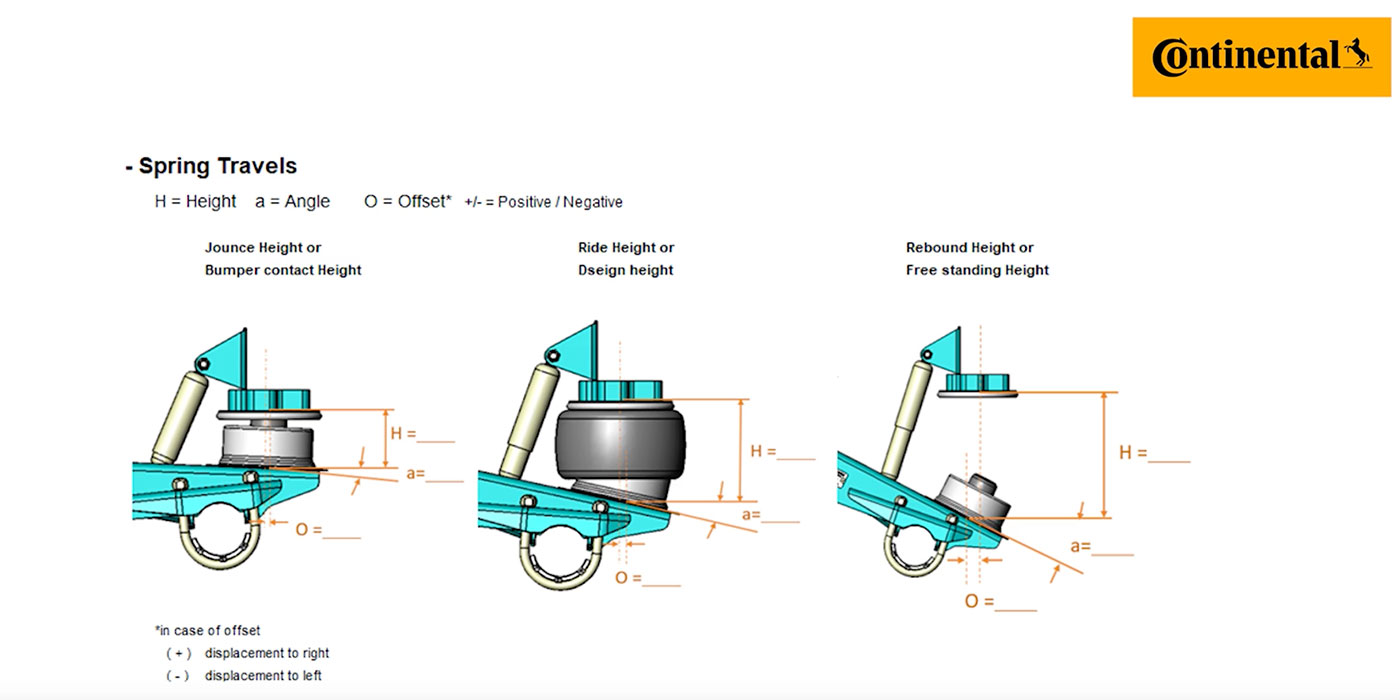If a customer brings in a diesel vehicle with a water pump that is making unusual sounds, there’s likely an underlying problem. To help you pinpoint the causes(s) of the noise, we put together a list of the most common unusual noises diesel engine water pumps make.
1. Squeaking or clicking
If you hear a squeaking or clicking noise coming from the water pump, then it’s likely that the bearings are bad. The bearings support the shaft that connects the pulley and impeller. When they’re worn, they’ll make a squeaking or clicking sound because the shaft no longer rotates smoothly.
The bearings can be replaced in some water pumps, but usually it is more cost effective to replace the whole pump. If the bearings or pump aren’t replaced soon after the noise starts, then they’ll eventually break and other components may get damaged. The pump will have to be removed to replace the bearings, or course, to replace the pump. Don’t forget to check related components for damage, too.
2. Grinding or groaning
Sometimes a worn bearing will cause a grinding or groaning sound, but the cause is usually a bad water pump pulley. Driven by the serpentine or V belt, the pulley is responsible for rotating the water pump. When it’s cracked or warped, the pulley will wobble as it turns, resulting in a grinding or groaning noise.
Other signs of a bad pulley include:
- Physical damage on the pulley;
- Overheated engine; and/or
- Worn or frayed belt edges.
If the pulley seems fine upon inspection, then check the serpentine or V belt, as a loose belt may make the same noise.
3. Rattling
A rattling noise coming from the water pump means that the bearings are in the early stages of going bad. Sometimes the rattling noise only occurs when the engine is still cold and then stops once it warms up. That doesn’t mean the water pump is okay. It will fail shortly.
Not sure what the noise is?
If you’re unsure what the noise is, here are a few things to check:
- Serpentine (or V) belt – Inspect the belt for unusual wear, and check for proper tension.
- Water pump pulley – With the engine running, look for side to side wobble.
- Water pump – With the engine running, use a mechanic’s stethoscope to listen the water pump bearing. If it is bad, a grinding noise will be audible.
- Water pump impeller shaft – With the engine off, loosen the belt tension. Check the side-to-side and forward and backward play in the shaft. There should be none that you can feel by hand.
- Belt tensioner bearings – Many vehicles have one or more belt tensioners. When they fail, they can make a noise similar to a failing water pump. Loosen the belt tension, and check for play in the tensioner.
This article was sponsored by GMB North America, Inc. For more information, please visit our website at www.gmb.net

